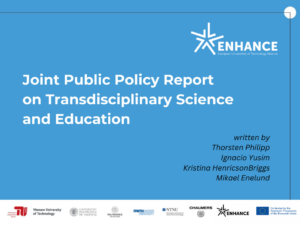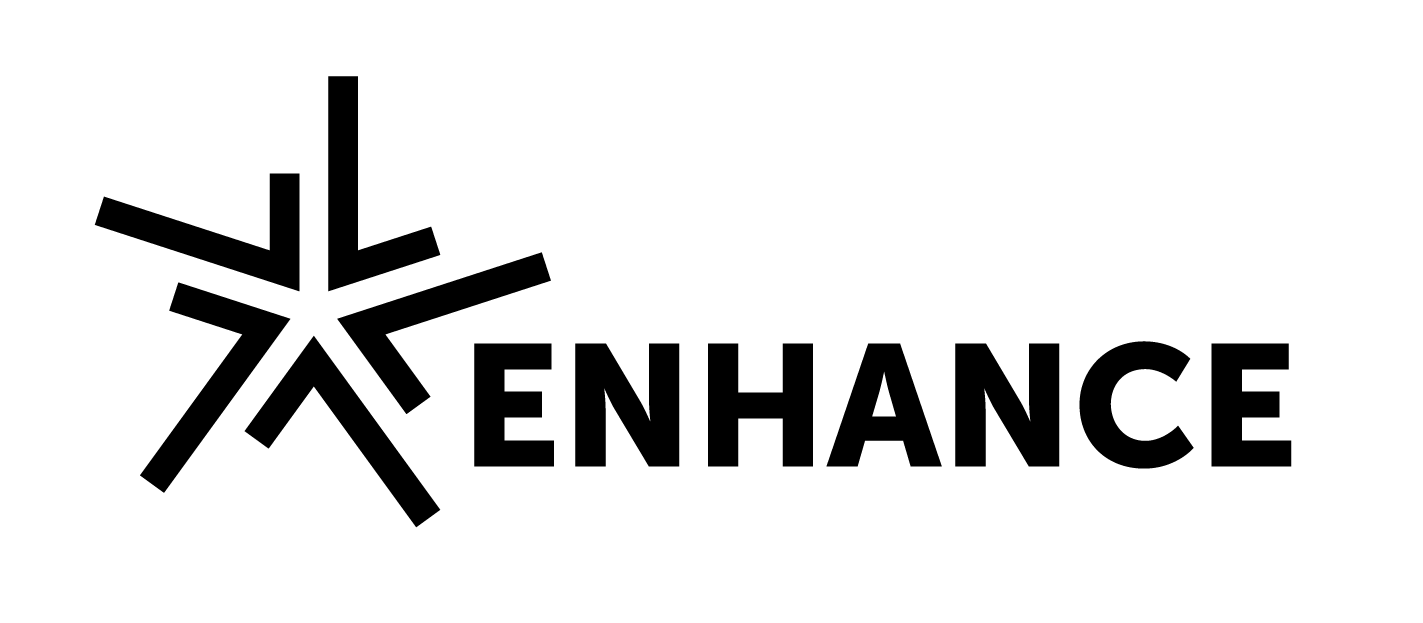Joint Public Policy Report on Transdisciplinary Science and Education
 Today’s global challenges urge for an understanding of academic education, in which scientific knowledge
Today’s global challenges urge for an understanding of academic education, in which scientific knowledge
alongside other knowledge resources such as experience-based knowledge, professional knowledge,
embodied knowledge, arts-based knowledge translation, etc., cooperatively contribute to problem solving.
However, the institutionalization of transdisciplinary education at universities requires new structures in
administration and university management, methodological competence, and a change management at
strategical levels. The reform path toward a participative culture in teaching and learning comprises
strengthened efforts in incentive structures, funding lines, recognition culture, and resource allocation. It is
no longer acceptable that transdisciplinary learning depends solely on the commitment of individual
lecturers. University administrations and decision-makers must actively provide supportive framework
conditions to promote the overdue systemic change and make students be part of the creative interplay
between science and society. Click here to read and download the Policy Report on Transdisciplinary Science and Education.
ENHANCE POLICY PAPER – Mind the implementation gap: Barriers faced by European University Alliances in their efforts to contribute to the successful realisation of the European Education Area.

The European University Initiative touches on many different aspects of higher education – from student mobility to innovative skills teaching, to inclusion procedures. This policy paper explores two major areas where European University Alliances are actively driving transformation in the European Education Area, and examines some of the related implementation barriers, namely 1) Micro-credentials and other joint short-term learning offers, and 2) Short-term and virtual mobility. The paper elaborates how we need to consider a European approach to micro-credentials and virtual and short-term mobility from the beginning and urges national policy makers to take the needs of the European Alliances into consideration when addressing issues around accreditation, quality assurance, student status and funding mechanisms. Continued institutional efforts to address the challenges identified here can only be successful with this complementary change at national and European levels. .
Annual Report on “Diversity and Gender Equality in ENHANCE” for 2022
 This report summarises all the diversity and gender equality-related activities within the ENHANCE Alliance. It is addressed to all those interested in finding out more about our approach. The report presents three main activity fields (goals) in relation to diversity and gender equality. This is the second report on Diversity and Gender Equality in ENHANCE. The annual report is meant to help us to capture the results of ENHANCE and provides information on whether there has been progress, or what results in our Alliance have been achieved in terms of inclusion, diversity and gender equality. .
This report summarises all the diversity and gender equality-related activities within the ENHANCE Alliance. It is addressed to all those interested in finding out more about our approach. The report presents three main activity fields (goals) in relation to diversity and gender equality. This is the second report on Diversity and Gender Equality in ENHANCE. The annual report is meant to help us to capture the results of ENHANCE and provides information on whether there has been progress, or what results in our Alliance have been achieved in terms of inclusion, diversity and gender equality. .

